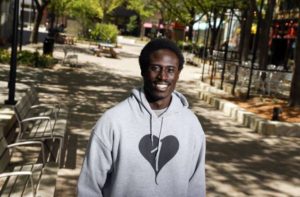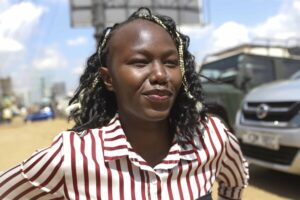Evanston’s Reparations Committee announced they will use a randomized selection tool to determine a payment order for the next group of reparations recipients at a meeting Thursday. Selection will begin December 7.
An estimated 20 residents attended the hybrid meeting at the Lorraine H. Morton Civic Center in person, with over 15 present virtually.
At the start of the meeting, Mayor Daniel Biss delivered remarks in support of Evanston’s flagship reparations program.
Biss said his maternal grandmother, who was a Holocaust survivor, received reparations from the German government decades after World War II.
“I carry those stories with me as I partner with the committee and the council and the community on this reparations work, understanding that financial repair by itself is not going to make everything right for anyone,” Biss said. “What we can try to do is to do our best to honor the members of our community who were harmed, to be brutally honest … about what we did to create that harm.”
With direct payments to eligible recipients in the “ancestor” category — Black residents who lived in Evanston between 1919 and 1969 — drawing to a close, many residents inquired when the reparations process would begin for those in the “direct descendants” category.
Committee chair Robin Rue Simmons said a survey sent to direct descendants showed “overwhelming support” for using an electronic randomization tool to decide the order of recipients.
The survey, answered by 137 of the 443 verified direct descendants, showed that 56% favored a random electronic selection tool, while nearly 25% voted in favor of using a physical tool similar to that used to order ancestor recipients. 19% voted for “other” methods.
Jim Milano, city information technology manager, joined the meeting remotely to demonstrate the use of electronic randomization to attendees.
“Tasheik (Kerr) reached out to me asking about creating an electronic process for randomly sorting a list of items in a spreadsheet,” Milano said. “I think this is a valid method. It can be used to randomly sort anything.”
Simmons said the committee will begin the selection process at its next meeting, scheduled for Dec. 7 at the Fleetwood-Jourdain Community Center.
The committee also introduced Michael Dykes, the reparation program’s construction administrator. Simmons said the committee received a $100,000 grant from The Chicago Community Trust to hire a dedicated person for this role.
Dykes, who has worked in the construction industry for more than 20 years, will oversee the Reparations Program’s home improvement benefit and collaborate with residents who choose that option.
City budget manager Clayton Black spoke to the committee’s plans to move the reparations fund into a Black-owned bank. He said the city is “open to exploring” that option, as long as the bank can promise to hold collateral worth 105% of the city’s original deposit.
Committee members suggested Liberty Bank and OneUnited Bank. Black said the city currently keeps its funds in several institutions, including Byline Bank and Wintrust Bank.
“I would say that it’s very important that the money is safe and growing,” Simmons said.
Email: joyceli2025@u.northwestern.edu
Twitter: @joyycee_li




